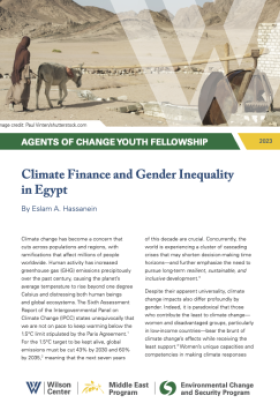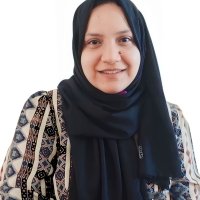Climate Finance and Gender Inequality in Egypt





Climate change has become a cross-cutting concern, affecting millions worldwide; however, these ramifications differ profoundly by gender. Women’s socioeconomic status and unequal access to resources and decision-making processes, as well as gender-blind adaptation and mitigation actions, means they are hit especially hard. And although incorporating gender considerations into climate finance schemes is gaining momentum as a way to tackle inequalities and climate action simultaneously, gender and environmental issues are still often addressed separately.
Egypt—which is among the countries most vulnerable to climate hazards—has developed a climate-coherent policy agenda that surpasses most of its MENA peers, but it still lacks a comprehensive framework to analyze the genderdifferential impacts of climate change and integrate women into climate finance. Facilitating women’s integration into Egyptian climate financing is essential not only to addressing gendered climate impacts but also addressing gender inequality more broadly.


The Wilson Center’s Middle East Program serves as a crucial resource for the policymaking community and beyond, providing analyses and research that helps inform US foreign policymaking, stimulates public debate, and expands knowledge about issues in the wider Middle East and North Africa (MENA) region. Read more


The Environmental Change and Security Program (ECSP) explores the connections between environmental change, health, and population dynamics and their links to conflict, human insecurity, and foreign policy. Read more
